What is Food Grade Citric Acid? A Comprehensive Guide for UAE Buyers
Citric acid, known chemically as C₆H₈O₇, is one of the most widely used food additives in the world. In the UAE, where the food industry is expanding rapidly across manufacturing, packaging, and distribution, citric acid plays a critical role in ensuring product stability, flavor enhancement, and shelf-life extension. But not all citric acid is created equal—particularly when it comes to food-grade quality.
So, what exactly is food grade citric acid, and how does it differ from industrial types? Let’s explore.
Definition and Chemical Properties
Food grade citric acid is a high-purity, weak organic acid derived primarily through fermentation of carbohydrates like sugar beets, molasses, or corn. Though it occurs naturally in citrus fruits such as lemons and limes, commercial production relies on controlled microbial fermentation to meet volume and purity standards.
It is:
-
Odorless
-
Colorless or white crystalline
-
Soluble in water and alcohol
-
pH: 3.0–6.2 (mildly acidic)
The two most common forms available in the UAE market are:
-
Citric Acid Monohydrate: Contains one molecule of water, often used in beverages and jams.
-
Citric Acid Anhydrous: Water-free, preferred for dry mixes, tablets, and powdered products.
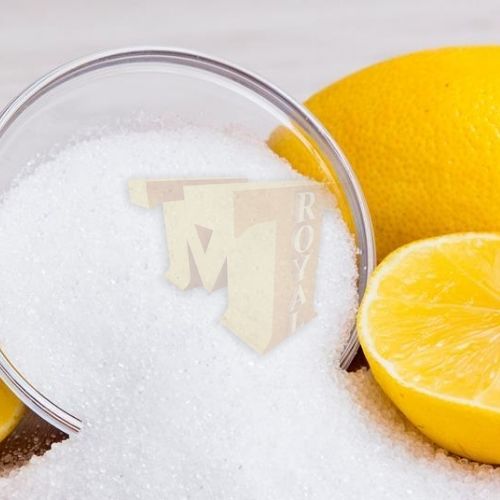
What Makes It “Food Grade”?
Citric acid is considered food grade when it meets specific purity and safety standards required for human consumption. These standards are defined by regulatory bodies such as:
-
Food Chemicals Codex (FCC)
-
United States Pharmacopeia (USP)
-
European Union E-number E330
-
ESMA & Dubai Municipality standards (UAE)
This means the product is:
-
Free from harmful contaminants and heavy metals
-
Produced in HACCP/ISO-certified environments
-
Accompanied by certificates like COA, MSDS, and Halal
Food grade citric acid must pass strict microbiological and heavy metal testing to qualify for use in consumable products.
Common Visual & Physical Specifications
| Property | Monohydrate | Anhydrous |
|---|---|---|
| Appearance | White crystals | White crystals/powder |
| Moisture Content | ~8–9% | <0.5% |
| Solubility | High in water | High in water |
| Packaging Options | 25 kg bags / 1-ton bulk | Same |
Why It’s Important in the UAE Market
With rapid growth in sectors like soft drinks, candy manufacturing, sauces, and bakery, the UAE food industry relies on consistent ingredient quality. Food grade citric acid helps:
-
Adjust acidity in products for safety and taste
-
Enhance fruit flavor in beverages and confectionery
-
Act as a natural preservative
-
Comply with Halal and clean-label requirements
Conclusion
Understanding what defines food grade citric acid is the first step for food producers, importers, and distributors in the UAE to ensure product safety and regulatory compliance. Whether you’re sourcing for industrial-scale manufacturing or private-label packaging, selecting high-purity, certified food grade citric acid is essential.
Citric acid Anhydrous 99.5 to 100.5% Türkiye
Food Grade Citric Acid Monohydrate Supplier
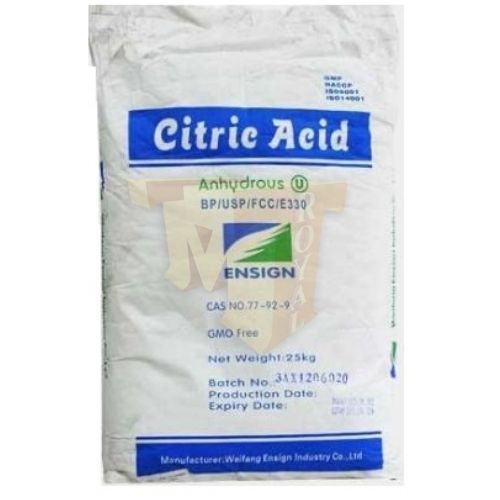
Applications of Citric Acid in the UAE – Food, Beverage, Pharma, and Beyond
Citric acid is one of the most versatile and in-demand raw materials in the UAE’s industrial landscape. From food and beverages to pharmaceuticals and cleaning agents, this mild organic acid (E330) has countless functional applications across sectors. Its ability to adjust pH, act as a preservative, and enhance flavor makes it a key ingredient for both local manufacturers and re-exporters operating in free zones like Jebel Ali and KIZAD.
In this section, we explore the top commercial uses of citric acid in the UAE, categorized by industry.
1. Food & Beverage Industry (Food Grade)
The UAE’s food and beverage sector is among the largest in the GCC, and citric acid is widely used in:
-
Soft drinks and juices: Enhances tartness, balances sweetness, and improves mouthfeel.
-
Confectionery: Adds a pleasant sour note to gummy candies, lollipops, and fruit-flavored sweets.
-
Jams, sauces, and ketchup: Stabilizes pH and prolongs shelf life.
-
Dairy products: Used in yogurt, cheese, and cream to control acidity and preserve freshness.
-
Baked goods: Enhances leavening when combined with baking soda (sodium bicarbonate).
Citric acid is often used in both formulation and final flavor adjustment, especially for export-ready goods.
2. Pharmaceutical and Nutraceutical Industry
In the UAE’s growing pharmaceutical and health supplement sector, citric acid is essential for:
-
Effervescent tablets and powders: Reacts with sodium bicarbonate to create fizzy delivery systems.
-
Stabilizing active ingredients: Controls pH in syrups, injectables, and suspensions.
-
Chewable vitamins and supplements: Adds flavor and helps with absorption.
-
pH regulation in intravenous solutions
Citric acid used in pharma must meet USP or BP standards and include full lab documentation.
3. Cosmetics & Personal Care Products
In UAE’s beauty industry, particularly for exports to Gulf and African markets, citric acid is used in:
-
Shampoos and conditioners: pH-balancer and preservative.
-
Skin creams and cleansers: Mild exfoliating properties and buffering.
-
Bath bombs: For effervescent reaction and fragrance enhancement.
It aligns with consumer demand for clean-label and naturally derived ingredients.
4. Cleaning & Industrial Applications (Industrial Grade)
UAE manufacturers in the chemical and cleaning sectors use citric acid as:
-
Descaling agent: Breaks down calcium and limescale in kettles, boilers, and industrial pipes.
-
Metal surface cleaner: Removes rust and oxides safely.
-
Detergent booster: Enhances cleaning efficiency and eco-friendliness.
-
Textile and leather treatment: Fixes dyes and controls alkalinity.
5. Water Treatment and Agriculture
Citric acid also plays a role in:
-
Water softening in cooling towers and reverse osmosis systems
-
Soil conditioning in hydroponic and controlled agriculture
-
Chelating agent for micronutrient delivery in fertilizers
Conclusion
From Coca-Cola bottlers to pharmaceutical giants and detergent makers, citric acid remains a backbone of UAE manufacturing. Whether in food-grade or industrial form, its flexibility and compliance with global standards make it a must-have in nearly every sector.
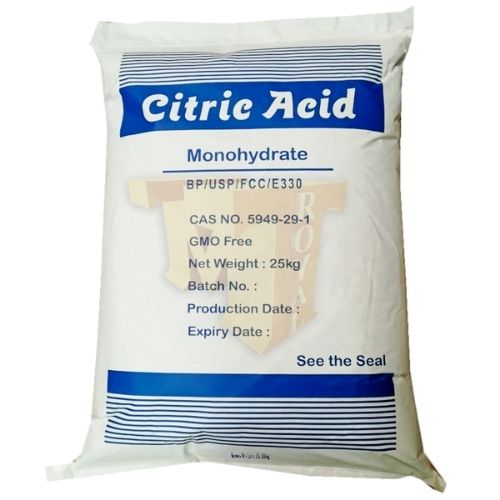
Conditions for Importing Citric Acid to Dubai – A Complete Guide for Buyers
The United Arab Emirates, particularly Dubai, is one of the most strategic import hubs for food and chemical ingredients in the Middle East. Whether you’re sourcing citric acid for food production or industrial applications, understanding the import regulations and customs procedures is key to avoiding delays and ensuring compliance.
This guide outlines everything you need to know about importing citric acid—both food grade and industrial grade—into Dubai.
1. Product Classification: Know Your Grade
Before importing, clearly identify whether your citric acid falls under:
-
Food Grade (E330): Used in beverages, dairy, bakery, and jams.
-
Industrial Grade: Used in detergents, water treatment, descaling, and pharma.
Each grade requires a different approach in documentation and registration.
2. Choose the Right HS Code
Correct classification under the Harmonized System (HS Code) is essential:
-
Citric Acid (Food Grade): HS Code 2918.14.00
-
Citric Acid (Industrial Use): Often listed under chemicals, may vary based on form
Using the wrong HS code may result in customs delays or fines.
3. Register the Product in Dubai Municipality (for food-grade)
For food-grade imports, you must:
-
Register the product on FIRS (Food Import and Re-export System)
-
Submit full technical documents (COA, MSDS, label artwork)
-
Declare the food additive as “E330 – Citric Acid” with purpose (acidifier, preservative)
Only companies with a valid Dubai trade license for food import can complete this process.
4. Obtain ESMA Approval (if required)
If you’re importing citric acid as part of a food product (e.g. instant juice mix), you may need to obtain approval from:
-
ESMA (Emirates Authority for Standardization and Metrology)
-
Comply with UAE.S GSO 21 for food additives
5. Customs Clearance Process
Key steps include:
-
Submit invoice, packing list, Certificate of Origin
-
Ensure container labeling matches submitted documentation
-
Use an authorized customs clearance agent in Dubai
-
Pay any applicable import duties (usually 5% unless exempt)
Some industrial-grade imports may be exempted under free zone regulations.
6. Halal Certification (for food use)
For citric acid used in Halal-labeled food products, especially beverages and confectionery, you must present:
-
Halal certificate from a recognized authority (e.g. JAKIM, IFANCA, ESMA)
-
Certificate must reference the batch and product lot clearly
7. Partner with an Experienced Importer – MT Royal
Many UAE companies choose to work with a trusted import-export partner like MT Royal, which offers:
-
Pre-cleared food-grade and industrial-grade citric acid
-
Warehousing in Istanbul and Mersin for fast shipment
-
Full documentation compliant with Dubai Municipality
-
Expertise in both customs clearance and Halal verification
Conclusion
Importing citric acid into Dubai can be fast and efficient—if you meet the documentation, classification, and registration requirements. For peace of mind and smooth customs processing, it’s highly recommended to work with a supplier who understands UAE import regulations inside and out
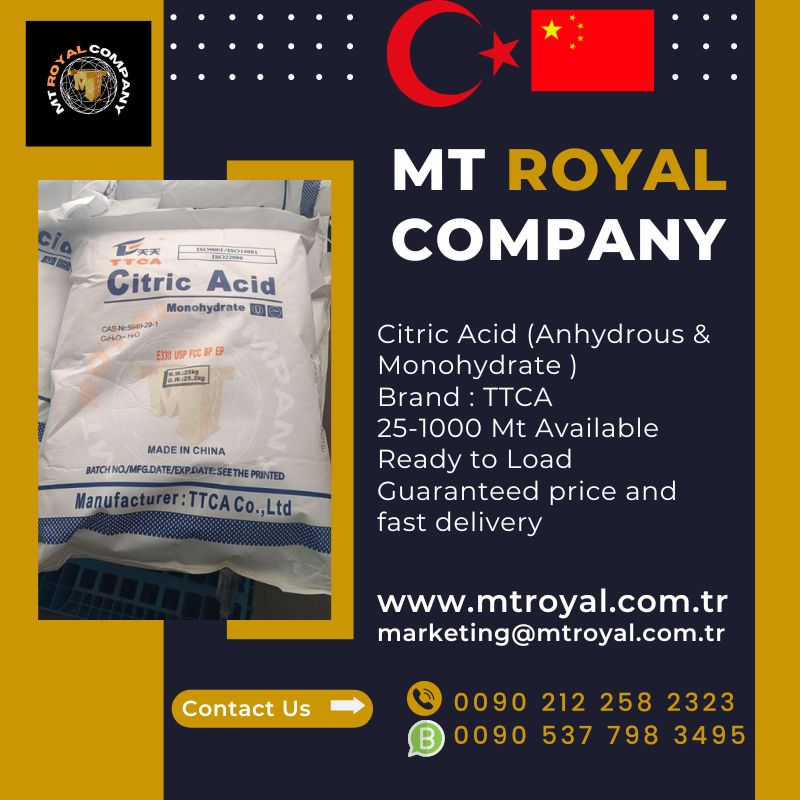
Required Certifications for Citric Acid Import to UAE (12 Key Documents)
Whether you are importing food-grade citric acid (E330) or industrial-grade citric acid into the UAE, having the correct certifications and documents is essential. Dubai Customs and Dubai Municipality have strict standards to ensure that imported products are safe, traceable, and compliant with local and international regulations.
Here are 12 key documents and certificates you must prepare or obtain before importing citric acid to the UAE:
1. Certificate of Analysis (COA)
Issued by the manufacturer or an accredited laboratory, this document provides detailed information about the product’s chemical composition, including:
-
Purity percentage
-
Moisture content
-
Heavy metal limits
-
Microbiological test results (for food grade)
2. Material Safety Data Sheet (MSDS)
This safety document outlines handling instructions, potential hazards, storage conditions, and emergency response for citric acid. Required for both food and industrial grades.
3. Certificate of Origin (CO)
Issued by the Chamber of Commerce in the exporting country. Proves the product’s country of origin and is needed for customs clearance and tariff assessment.
4. Halal Certificate (if used in Halal food production)
Mandatory if citric acid is to be used in Halal-certified food or beverage products. The certificate must come from a recognized Halal body, such as ESMA (UAE), IFANCA, or JAKIM.
5. Free Sale Certificate (Food Grade)
Issued by the health or trade authority in the country of origin, this document confirms that the product is legally sold and freely available in that country.
6. Label Artwork Approval
Dubai Municipality requires that food labels meet UAE.GSO food labeling standards. Labels must include:
-
Product name
-
Batch number
-
Net weight
-
Ingredients (for blends)
-
Importer/distributor info
-
Production and expiry dates
7. Product Registration Certificate in FIRS (Food Import and Re-export System)
Before the product is cleared for sale in Dubai, it must be registered in FIRS, with all documentation uploaded for review and approval.
8. Technical Data Sheet (TDS)
Provides manufacturing specifications, applications, and performance details—often required for industrial use imports.
9. Importer Trade License (with relevant activity code)
Only companies with valid UAE trade licenses with the appropriate import activity code (e.g., “Import of food ingredients” or “Import of chemicals”) can register and clear products.
10. Emirates Quality Mark (Optional / High Volume Use)
For large-scale imports or public tenders, having the Emirates Quality Mark (EQM) helps in government procurement and major tenders. This shows compliance with UAE national standards.
11. Packaging Declaration / Conformity Statement
Especially for industrial-grade citric acid, the UAE authorities may request a declaration confirming the packaging type (e.g., HDPE bag, kraft paper) complies with local safety standards.
12. Shipping Documents
Standard documents required for all imports include:
-
Commercial invoice
-
Packing list
-
Bill of lading / airway bill
-
Container number and seal info (for sea shipments)
Why Work with MT Royal?
MT Royal offers citric acid pre-cleared with all certifications required for UAE imports. As a reliable citric acid supplier for food and industrial use, we:
-
Provide full documentation for customs and health authorities
-
Offer Halal and COA-certified batches
-
Ship quickly from Istanbul and Mersin warehouses
-
Support clients with technical files and registration in Dubai systems
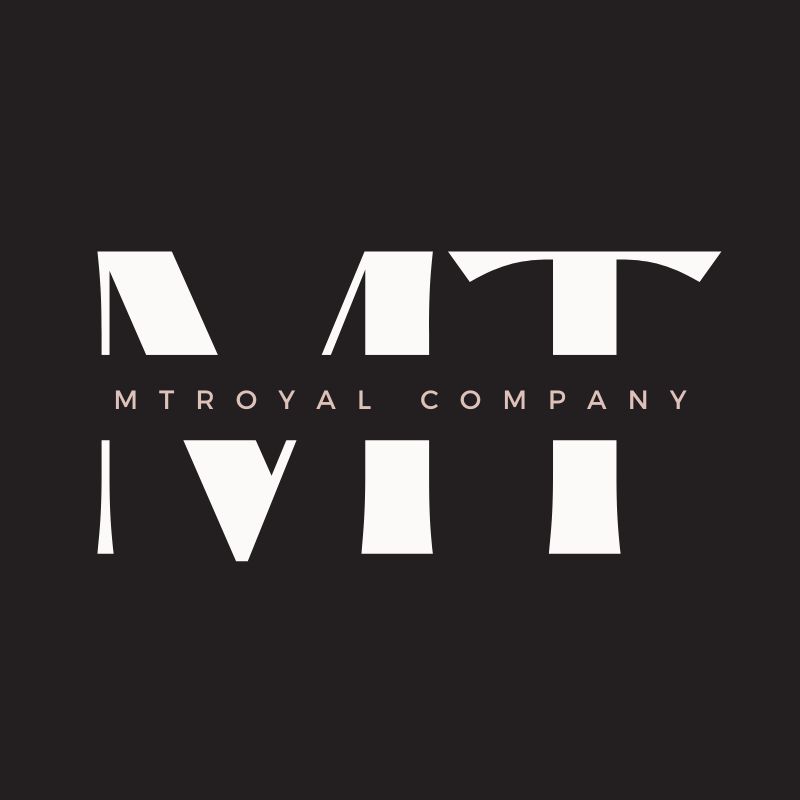
Applications of Citric Acid in UAE Food and Industrial Sectors
Citric acid, known globally as E330, is one of the most versatile and widely used ingredients in both food and industrial applications. In the UAE, a country with a rapidly growing food manufacturing sector and expanding industrial base, the demand for high-quality citric acid continues to rise across multiple sectors.
Below, we explore the major applications of food-grade and industrial-grade citric acid in the UAE market:
A. Food Industry Applications (Food-Grade Citric Acid)
1. Beverage Industry – Juices, Soft Drinks, Energy Drinks
Citric acid is a key acidulant used to provide a tangy, refreshing taste and stabilize pH. It also acts as a natural preservative for ready-to-drink products.
-
Maintains flavor integrity
-
Improves shelf-life stability
-
Widely used by juice and soda producers in Dubai and Abu Dhabi
2. Confectionery & Gummies
Used for pH control and flavor enhancement in gummies, hard candies, and jelly products. Especially popular in halal-certified candies manufactured in the UAE.
3. Bakery & Cake Mixes
Citric acid improves dough fermentation and acts as a leavening agent enhancer when combined with baking soda. It also helps preserve freshness.
4. Dairy Products & Processed Cheese
It helps to regulate acidity and improves texture in cream cheese, processed cheese slices, and yogurt drinks.
5. Sauces & Condiments
Used to acidify tomato sauces, salad dressings, and mayonnaise. Citric acid ensures microbial safety and enhances tartness.
B. Industrial Applications (Industrial-Grade Citric Acid)
6. Cleaning Products
Citric acid is a natural and biodegradable chelating agent used in:
-
Bathroom cleaners
-
Kitchen degreasers
-
Detergents
It’s effective in removing lime scale, soap scum, and metal deposits.
7. Cosmetics & Personal Care
Used in:
-
Skin toners
-
Shampoos
-
pH adjusters in creams and serums
Citric acid maintains pH balance and improves product stability.
8. Pharmaceuticals & Nutraceuticals
Acts as a buffering agent and effervescent base in tablets, lozenges, and vitamin C supplements.
9. Water Treatment & Metal Cleaning
Widely used for descaling in boilers, metal cleaning in industrial plants, and water softening processes.
Why UAE Buyers Prefer MT Royal’s Citric Acid
-
High Purity (>99.5%) citric acid for both food and industrial use
-
Available in 25 kg bags, with Halal, COA, and FIRS registration-ready documents
-
Bulk supply from Turkey with fast delivery to Dubai, Sharjah, and Abu Dhabi
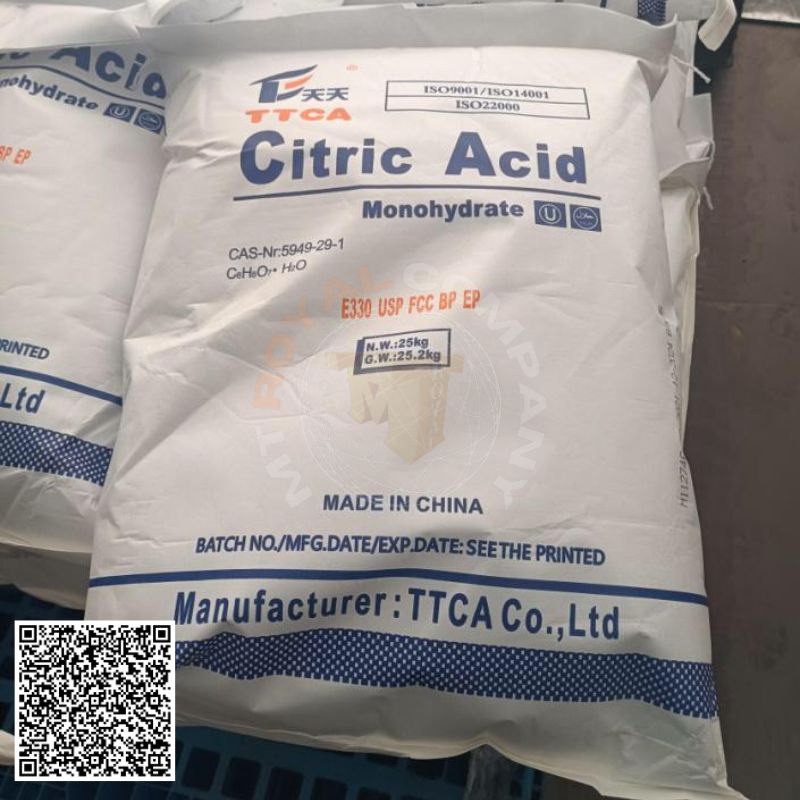
How to Source Citric Acid in Bulk for UAE: A Step-by-Step Guide for Food & Industrial Buyers
With rising demand for citric acid across the UAE, bulk procurement has become a strategic necessity for food processors, beverage producers, detergent manufacturers, and industrial users. Whether you’re operating in Dubai, Sharjah, Abu Dhabi, or any other emirate, securing a reliable supplier of food-grade and industrial-grade citric acid can streamline your operations and ensure compliance.
Below is a step-by-step guide tailored for UAE importers and manufacturers seeking bulk citric acid:
Step 1: Identify Your Grade and Use Case
-
Food-Grade Citric Acid Monohydrate / Anhydrous: For beverages, confectionery, baked goods, dairy.
-
Industrial-Grade Citric Acid: For cleaners, cosmetics, water treatment.
Clearly define your application to select the right grade and purity level.
Step 2: Choose a Verified Supplier
Select a supplier with:
-
Halal and ISO certifications
-
Proven export track record to UAE
-
Ability to provide COA, MSDS, and customs-compliant documentation
MT Royal, with over 18 years of experience in exporting raw materials from Turkey, is a trusted partner for UAE buyers.
Step 3: Confirm Packaging and Quantity
Decide on:
-
Bag size (typically 25 kg for bulk use)
-
Total volume needed (e.g., 5–20 tons/month)
-
Preferred delivery format (FCL/LCL shipment)
MT Royal provides custom palletizing and fast dispatch from Mersin and Istanbul warehouses.
Step 4: Request Proforma Invoice & Certificates
Before import, request:
-
Proforma invoice with product specification
-
Health certificate (for food-grade)
-
Halal certificate (mandatory in UAE)
-
Certificate of Origin (Turkish origin, for customs duty benefits)
Step 5: Arrange Shipment & Customs Clearance
Work with your logistics partner or allow the supplier (like MT Royal) to:
-
Handle export documentation
-
Book sea freight to Jebel Ali, Sharjah, or Abu Dhabi
-
Ensure CIF delivery if required
Step 6: Quality Check Upon Arrival
Once your shipment arrives:
-
Inspect physical integrity of bags
-
Cross-verify batch numbers and COA
-
Run lab testing if needed (recommended for food use)
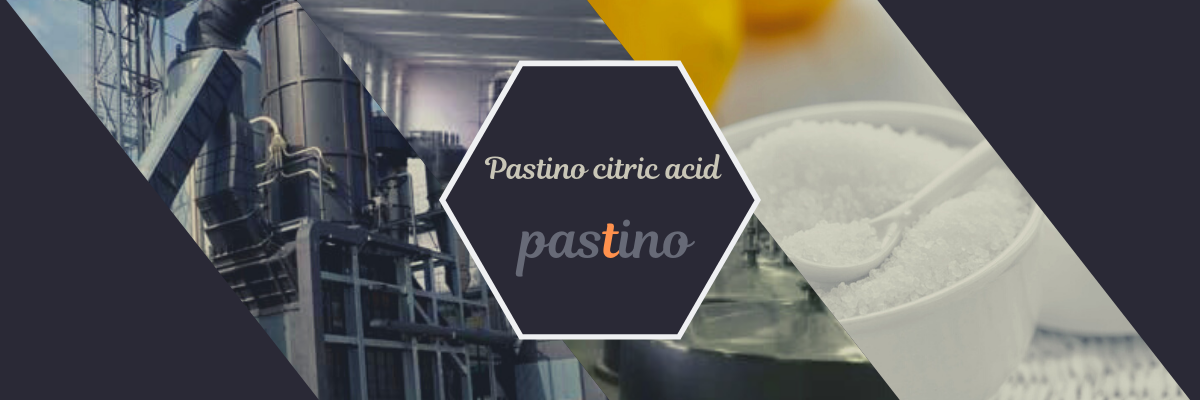
Required Certificates & Compliance Documents for Importing Citric Acid into the UAE
When importing citric acid—whether food-grade or industrial-grade—into the United Arab Emirates, regulatory compliance is essential. The UAE, with its stringent food and industrial safety laws, mandates a specific set of certifications and documents for customs clearance and market entry.
Below are the 12 key documents and certifications typically required when importing citric acid into the UAE:
1. Certificate of Analysis (COA)
Details the physical and chemical properties of the product, including purity level, moisture content, and pH value.
2. Halal Certificate
Mandatory for food-grade citric acid, particularly when used in food and beverage production. It must be issued by a UAE-recognized halal authority.
3. Health Certificate
Issued by the competent health authority in the exporting country to confirm that the citric acid is safe for human consumption.
4. Certificate of Origin (COO)
Verifies the product’s country of manufacture. Often required for tariff benefits under UAE trade agreements.
5. Safety Data Sheet (SDS / MSDS)
Essential for industrial-grade citric acid, providing safety and handling information for factory or warehouse staff.
6. Free Sale Certificate
Demonstrates that the product is freely sold and approved for use in the country of origin, often required by UAE municipalities.
7. Product Label in Arabic
Packaging must include product name, net weight, origin, and usage instructions in Arabic.
8. Import Permit (if applicable)
Some emirates may require a special permit from the Food Control Section or relevant municipality before shipment clearance.
9. Product Specification Sheet
Outlines detailed product attributes like form (anhydrous/monohydrate), grade, granule size, solubility, etc.
10. Invoice and Packing List
A commercial invoice including HS code, weight, CIF value, and a detailed packing list for customs processing.
11. Bill of Lading / Airway Bill
Issued by the freight forwarder, this document is essential for port clearance and delivery tracking.
12. Laboratory Test Report (Optional)
Sometimes requested by the customs authority for food-grade products to verify safety and compliance with GCC standards.
Note for UAE Importers:
Municipalities such as Dubai Municipality (DM) or Abu Dhabi Agriculture and Food Safety Authority (ADAFSA) may require online product registration before the first shipment. Ensure your supplier is familiar with this process.
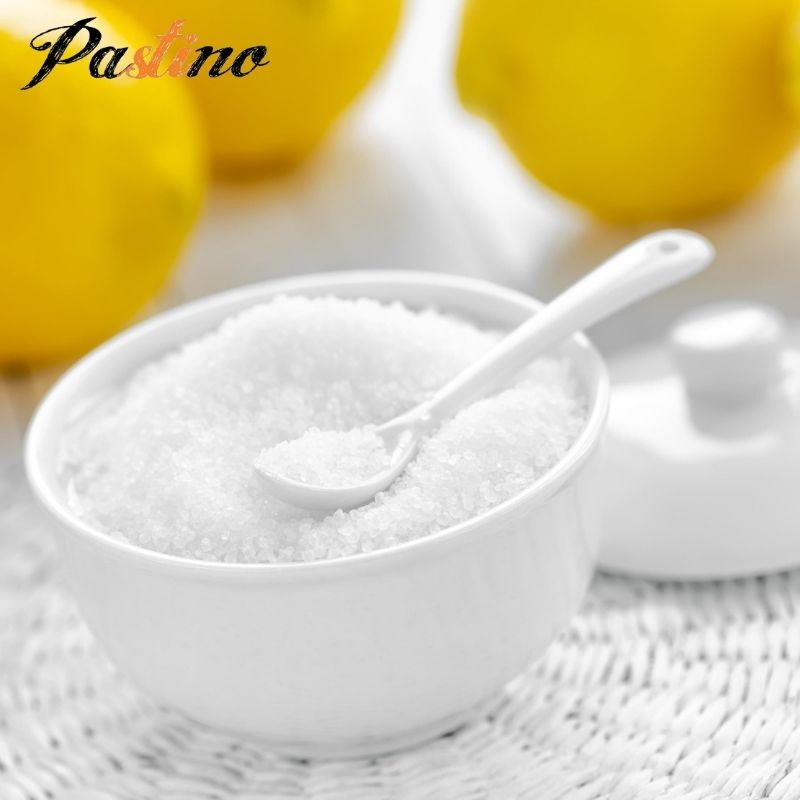
Differences Between Food-Grade and Industrial-Grade Citric Acid: UAE Perspective
In the UAE’s dynamic market—where both food safety and industrial performance are strictly monitored—the distinction between food-grade and industrial-grade citric acid plays a vital role. Whether you’re supplying to a confectionery manufacturer in Dubai or a cleaning product producer in Sharjah, choosing the right grade is essential.
Below is a detailed comparison to clarify the key differences between these two forms of citric acid:
1. Purpose & End Use
-
Food-Grade Citric Acid
Used in food and beverage applications such as soft drinks, candy, jams, baked goods, and dairy. Acts as an acidifier, preservative, and flavor enhancer. -
Industrial-Grade Citric Acid
Used in applications like detergents, water softeners, pharmaceuticals, cosmetics, and textile processing. Its function often relates to pH control or chelating minerals.
2. Purity and Composition
-
Food-Grade:
Typically ≥99.5% purity, tested for microbial safety, heavy metals, and free from contamination. Complies with Codex Alimentarius and UAE food regulations. -
Industrial-Grade:
May contain higher levels of impurities not suitable for ingestion. It’s effective for industrial efficiency, but not fit for consumption.
3. Certification Requirements
-
Food-Grade:
Requires a Halal certificate, Health certificate, and Certificate of Analysis with strict microbiological limits. -
Industrial-Grade:
Primarily requires an MSDS, COA, and product specification sheet. No halal or health certificates are needed unless it’s for pharmaceutical use.
4. Regulatory Authorities in UAE
-
Food-Grade:
Overseen by Dubai Municipality, ADAFSA, and ESMA (for Emirates quality mark if needed). -
Industrial-Grade:
Subject to customs and environmental health checks but with fewer import restrictions compared to food items.
5. Packaging & Labelling
-
Food-Grade:
Must include detailed labels in Arabic and English, including production/expiry dates, batch numbers, and nutritional info if applicable. -
Industrial-Grade:
Requires hazard symbols and handling instructions but no nutritional labeling.
6. Price Difference
Due to the extensive testing, documentation, and purity levels, food-grade citric acid is generally more expensive than industrial-grade.
7. Import Strategy for UAE Buyers
-
Food manufacturers in the UAE must work with suppliers who provide full traceability, compliance with Gulf standards, and product registration support.
-
Industrial users may prioritize cost-efficiency and large-volume packaging for detergents, water treatment, or technical use.
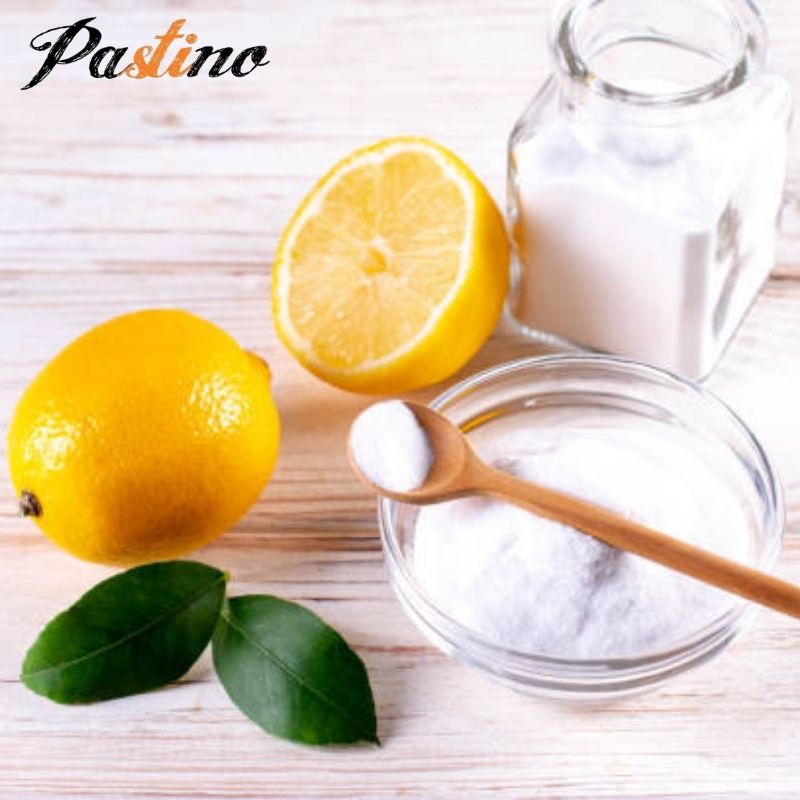
Where to Buy Citric Acid in UAE? Top Tips for Sourcing from Trusted Suppliers
When it comes to sourcing citric acid in the UAE, businesses across the Arabian Gulf region—particularly in food production, beverages, cosmetics, and industrial sectors—demand a supplier that is consistent, certified, and cost-effective. Whether you’re in Dubai, Abu Dhabi, or Sharjah, choosing the right citric acid supplier directly impacts your product quality and regulatory compliance.
Citric acid is available in two main grades:
-
Food-grade citric acid used in juices, jams, confectionery, and dairy
-
Industrial-grade citric acid used in cleaning products, cosmetics, and pharmaceuticals
Many local distributors in Dubai offer stock for immediate delivery, but they often carry limited brands at higher prices. Direct import from Europe or Asia may reduce costs, but the process can be time-consuming and complex—especially without a logistics partner.
Why MT Royal?
MT Royal is a leading and trusted citric acid importer and supplier serving the UAE market. With over 18 years of experience in raw material sourcing for food and industrial applications, MT Royal offers:
-
Fast delivery from warehouses in Istanbul and Mersin
-
Full certification, including Halal, COA, and MSDS
-
Flexible MOQ and packing options
-
Competitive pricing due to direct contracts with global manufacturers
MT Royal supplies both food-grade and industrial-grade citric acid to UAE customers in compliance with all local standards. Whether you’re a bakery, beverage company, or industrial cleaner, MT Royal ensures that your supply is smooth, certified, and cost-effective.
For reliable sourcing of citric acid in the UAE, MT Royal remains a trusted name across the Arabian Gulf.
Alkalized Cocoa Powder for Chocolate Manufacturing in the UAE
latamarko alkalized cocoa powder lm60
cocoa powder for chocolate production-Best price
Food industry raw materials – list of products


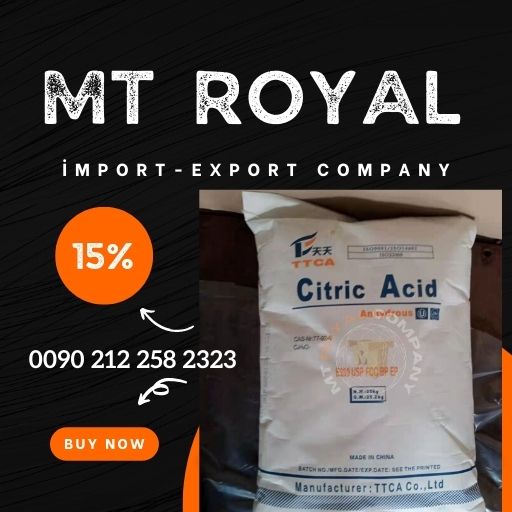
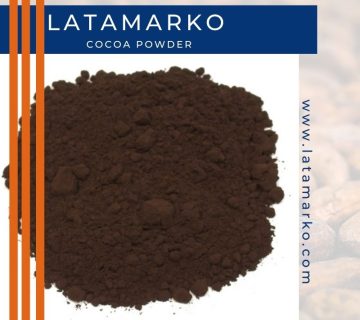
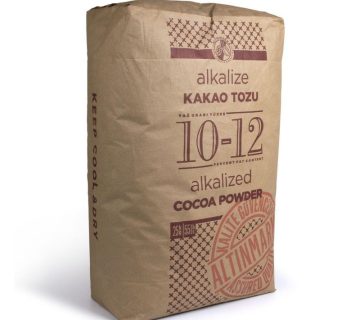
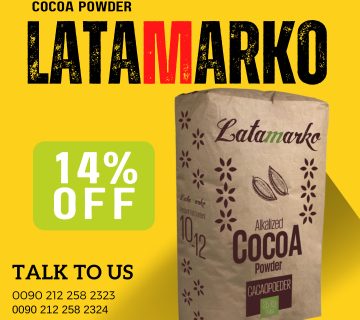
No comment